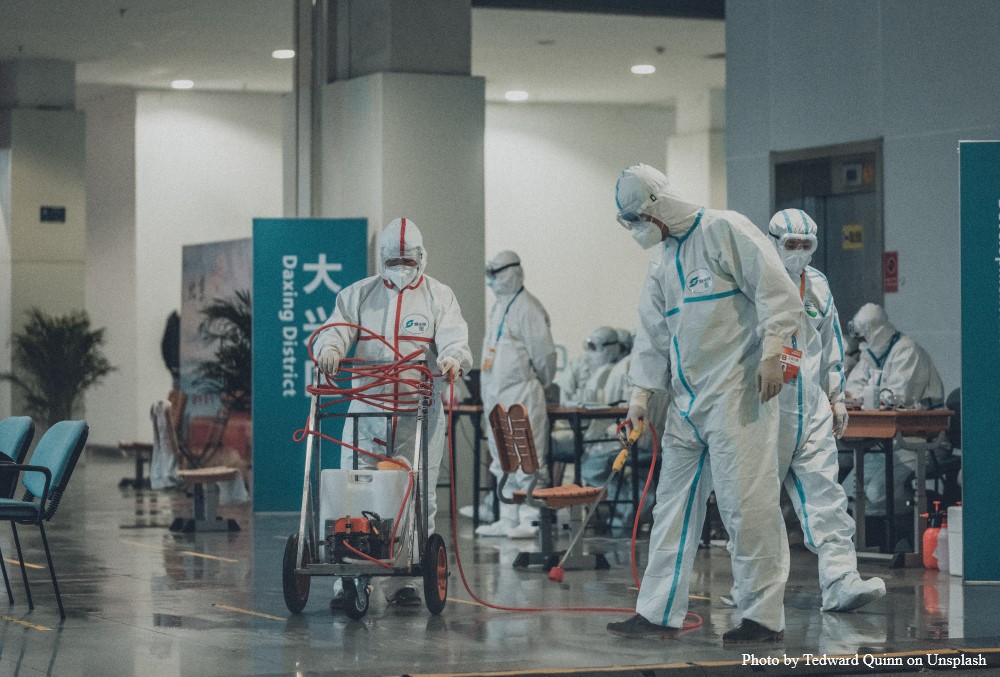27 March 2020
Emerging Challenges For NGOs Due To COVID- 19
How COVID-19 is affecting the ability of NGOs to gather data in the field. By Stefan Rus.
Back to BlogsFor most people, the spread of COVID-19 has already begun to fundamentally alter daily life. The operations of NGOs working on development projects and advocacy are no different. Jeremy Wellard, Asia representative for the International Council of Voluntary Agencies (ICVA), described it as “a moment of reckoning for the sector.” Many NGOs have already shuttered their offices and curtailed travel and community outreach. The challenges faced by these organizations as a result of COVID-19 can be grouped into three categories: travel restrictions, risk to staff, and barriers to community access.
Travel Restrictions
Office shutdowns along with international and domestic travel restrictions have crippled the mobility of many organizations. Government-imposed domestic travel restrictions have forced many organizations to scale back or suspend staff travel. UNMISS, for example, froze non-essential staff movement between field locations. Combined, domestic and international travel restrictions present a major challenge to the mobility of NGOs: “Part of my team is either out of the country or locked up in their apartments,” explained one aid worker.
It is not just the mobility of personnel that has suffered from travel restrictions. NGOs operating in the DRC also worry that border closures risk affecting their work as they rely on roads from Burundi and Rwanda for supplies.
Access to Communities
The lockdown of various regions and other measures designed to slow the spread of the virus are also making it harder for NGOs to carry out their work. In the Philippines, strict community quarantines imposed by local governments have delayed or prevented response programs such a Polio vaccination program and a cash grant program for typhoon survivors run by the Red Cross, from reaching their recipients. NGOs will increasingly have to deal with their staff or the communities they are trying to help being under quarantine. This presents a novel challenge for most groups: “We hope to be of help as much as we can, but we accept our limitations as we have no experience in responding to this kind of crisis,” said Regina Salvador-Antequisa, who heads the NGO Ecoweb.

The risk international personnel bring to local communities also needs to be assessed. Tightly packed refugee camps like those for the Rohingya in Bangladesh could be devastated if the virus is introduced via aid workers. According to Christine Sow, the chief executive of Humentum, a development support group, an added challenge to accessing communities will be the attitude of “Stranger Danger” that became prevalent during the Ebola crisis and will likely re-emerge.
Supporting on-the-ground Reporting During the Crisis
The pull-back of national and international NGOs across the world has also impacted the flow of information between the often-remote areas in which they work and stakeholders in the capital who can influence those outcomes. This has both an effect on the ability of NGOs to carry out their programming, and a further effect on accountability for other organizations operating in these areas, and may lead to some actors to feel emboldened knowing that their actions are unlikely to come to light.
The 2013 Ebola outbreak in West Africa showed us that major health crises can make it easier for some companies to take advantage of remote communities. A 2015 report by advocacy group Global Witness alleges that palm oil producer Golden Veroleum Liberia (GVL) took advantage of rural communities in south-eastern Liberia during the 2014 Ebola outbreak. The group claims that GVL pressured local farmers, many of them illiterate, to sign away their rights at a time when environmental and human rights groups had scaled back their operations in the regions due to the virus.

As the COVID-19 pandemic intensifies, our partners in several countries have already documented an increase in illegal forestry and extractive deals as the world turns its attention to the new virus, and this will continue for the months to come. In light of this, the recent pull-back by NGOs and the impact of domestic travel restrictions and reduction of information gathering in the field is especially concerning. Important issues like land rights violations and environmental damage risk taking place unchallenged.
More than ever we need to enable communities and civil society organizations to collect information to keep the powerful accountable even while their staff are largely immobilized. TIMBY is working with our partners to ensure that their monitoring work can continue despite the limitations on travel for their staff. And we are working with new organizations to implement remote monitoring solutions to ensure that their ability to collect information in the field is not compromised.
At its core, TIMBY is about allowing anyone to collect data from the field and aggregating it so it can be analyzed remotely; features that organizations are increasingly viewing as essential. That is why during these challenging times, we are extending the TIMBY system free-of-charge for three months to all non-governmental organizations and community groups working actively on the response to COVID-19, particularly in Africa, Asia and South America where our presence is strongest and where healthcare systems may be most impacted by the burden of this virus.
You can learn more about how TIMBY is helping meet the challenges brought on by COVID-19 in our recent post.

